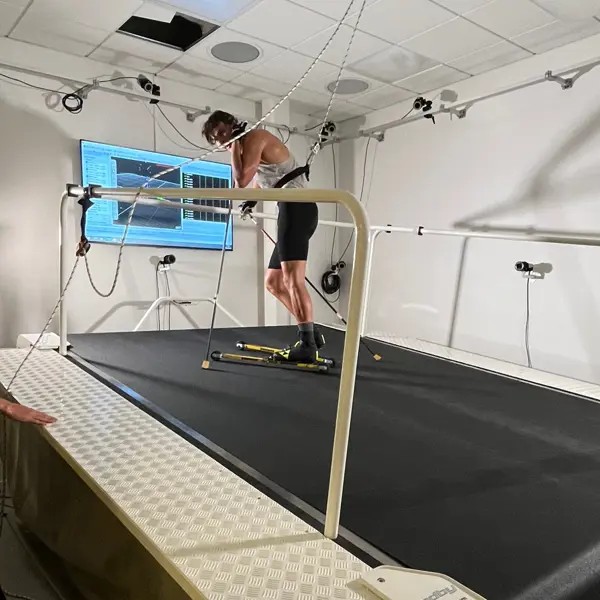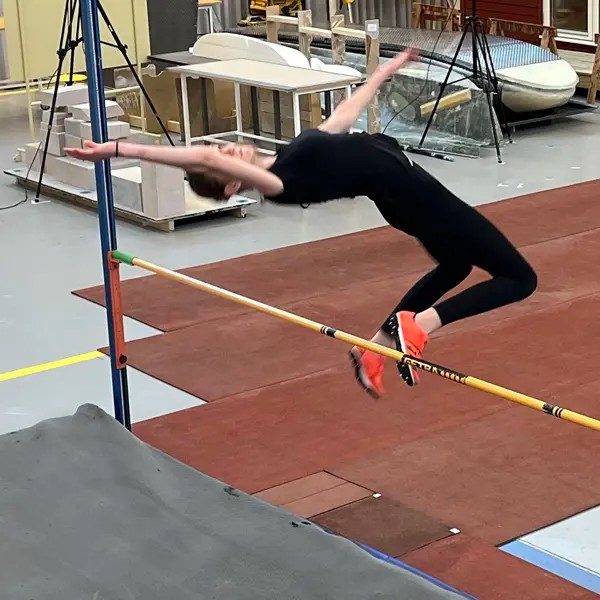Our society is under a digital transformation. No one knows exactly where it will bring us but it will likely affect us all and everywhere both professionally and in our spare time. Although the transformation is seen in many arenas, the sport sector is one of the sectors that is quickest in the adaption and among the most advanced in the merge between digital and traditional services. In recent years we have seen numerous innovations emanating from the omnipresent data that is enabled by novel sensor technologies and quickly uploaded to the cloud through high-speed communication devices and processed in terabit data processors.
In this course we exploit user needs in the sport sector as a digital innovation arena. As a student in the course, you will work on challenges defined by a stakeholder in the sport sector, it may be from an athlete, a federation or an industrial actor. You will face different innovation drivers, e.g., from the consumer perspective where sharing and entertainment are major drivers or from a professional athlete’s perspective where measurement precision and relevance are the most important.
General information
Innovations generally require a combination of theoretical expertise and multi-disciplinary practical skills. This course is designed to train students in innovation skills with a special emphasis on the sport sector. You will be paired with other students in interdisciplinary teams. You will be able to excel with theoretical skills acquired in other course and exploit these in a problem-based learning environment. At the same time, you get a unique chance to widen your experience with the competence and gather experience from your peer students in the interdisciplinary project groups. You will also meet practical and theoretical experience in many topics that are not widely touched upon in other Chalmers courses. Some examples are: measurement methodology, error-propagation and sensitivity analysis, statistical planning of experiments, prototyping and production. Everything is presented from a human-centered perspective and the course may be counted as an MTS course if acknowledged by your programme administrator.
The course runs over study period one and two. It starts with six introductory lectures/workshops where you are introduced to fundamentals behind sensor technologies, measurement methodology, mechanics, data analysis, machine learning and interaction design.
After the introductory phase where the theoretical framework is defined, the focus shifts over to the project work which is the main element of the course. There are a variety of projects with a good mix between different sports, team sports and individual sports and challenges in sensors and measurements, data-analysis, and/or prototyping. The projects for this year are not finally settled and depends on the number and interests of the course participants.
Prerequisites
The course is open to Bachelor students and Master students from all programmes at Chalmers. In the application, students are expected to declare which project they are interested in primarily. Depending on program and the students previous courses, some fields may be more suitable.
How to apply
Apply to all Tracks courses at universityadmissions.se/antagning.se.
At universityadmissions.se/antagning.se: Search for the course you are interested in by using the course code starting with TRA.
Read more here.
Please add your transcripts, CV and a motivation letter to the application - 1 page A4 at max.
Details
Teachers: Dan Kuylenstierna, Martin Fagerström, Marco L. Della Vedova
Course duration: Study period 1-2
Credits and level: 7.5 or 15, Advanced level (MTS Course).
Course code: TRA300 (7.5 ECTS), TRA375 (15 ECTS)
Application deadline: Aug 19 - Sep 5, 2025
Examples of projects within sports and technology

Elite skier test their limits
The super skier Max Novak collaborates with Chalmers to reach new goals. He uses the physiology lab, which is located in Chalmers Makerspace Fuse.

Students want to improve the Swedish high jump
Six Chalmers students are currently working on a high jump project on behalf of the Swedish Athletics Federation. They are doing the project as a Bachelor's thesis, with the goal of developing a user-friendly technology, a prototype that can easily be used in everyday life to give athletes and coaches better opportunities for analysis and development.
Swedish Television about Chalmers high jump project:
Watch it here (Content in swedish)